We use the word trait to describe patterns that can affect how people think, feel, or act. Some might call them symptoms, behaviours, difficulties, or abilities – we just call them traits.
There’s more on how to score the traits on the next page.

How much you tend to get totally absorbed in tasks or interests. You might find yourself “in the zone” for hours - which can be amazing for productivity or creativity, but also means losing track of time or forgetting other priorities. A high score might mean you regularly lose hours to intense focus, like forgetting to eat or missing time while deep in a project or hobby.

How easily your attention is pulled away from what you’re trying to focus on and can include forgetting what you're doing, saying or where you're going. A high score might mean frequent zoning out, jumping between tasks, or finding it hard to stay on track.

How likely you are to act quickly without thinking - like blurting something out, making snap decisions, or taking risks. This can show up in conversations, spending habits, or day-to-day choices. A high score might look like impulse spending, or making big decisions without considering the consequences.

How often you use movement or repetition like fidgeting, tapping, rocking, skin picking, or repeating sounds to help regulate emotions or stay calm. For some people, these behaviours are soothing or joyful and happen every day. A high score might mean nearly continuous repetitive habits.

Whether you experience movements or sounds that you don’t choose or control - like blinking, twitching, or vocalising. These are different from stimming because they’re involuntary, and may be more noticeable or disruptive. A high score could reflect frequent tics that are highly noticable.
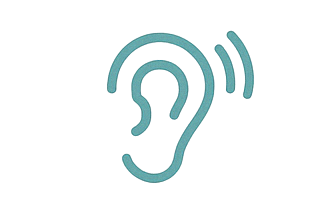
How strongly your senses react to the world around you, like being stimulated or overwhelmed by lights, sounds, textures, smells, or crowds. This might also include craving certain sensations, or noticing that some senses are much more sensitive than others. A high score might mean everyday things quickly become overwhelming or painful.
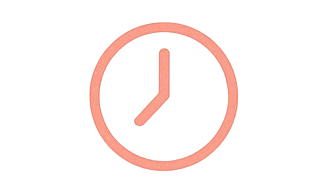
How much you rely on routines, structure, or sameness to feel safe and steady. A high score might mean unexpected changes feel unsettling or stressful. A low score might mean you prefer variety and spontaneity.
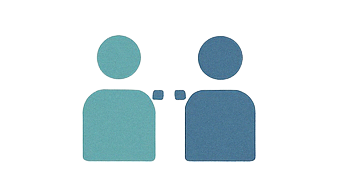
How hard it feels to navigate social situations. This might include things like missing social cues, feeling awkward, anxious, or out of place, or struggling to build or maintain relationships. A high score could mean you often feel out of sync with others, overthink social rules, or need extra recovery time after socialising.

How much difficulty you have with things like reading, spelling, or written maths. This could include slow reading, frequent typos, or trouble doing sums “on paper” even if you understand them in your head. A high score could look like avoiding written tasks, needing colleagues to proof your work and difficulty with basic life admin.

How difficult it is to follow spoken language, especially in noisy or fast-paced environments. You might hear fine, but find yourself needing more time to understand what’s being said or feeling mentally overloaded by conversation. A high score might mean needing extra time to understand what someone said or avoiding noisy and busy social situations.

How much you struggle with physical coordination like bumping into things, struggling with handwriting, sports, or activities that require sequences of movement. A high score here might mean daily tasks feel more effortful or clumsy, or that you're regularly injuring yourself and breaking objects.

How much creativity and original thinking shape your life. This can look like artistic talent, practical skills or conceptual thinking. A high score might mean you’re constantly coming up with ideas, solutions, or imaginative ways of looking at the world. You might make connections between very different topics, sometimes at speed, which can be hard for others to follow.
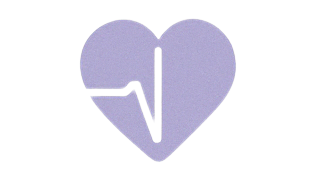
How much your emotions affect you and how easy it is to manage them. You might feel things very intensely, find it hard to calm down when upset, or react strongly to small frustrations or unexpected changes. A high score might mean struggling to calm down, or feeling derailed by unexpected feedback or conflict.

How much you tend to focus deeply and passionately on particular topics or hobbies. These can bring a lot of joy and fulfilment, but a high score might indicate the topic also takes up a lot of your time and attention and dominates your social interactions, sometimes to the exclusion of other things.

How difficult you find planning, organising, starting tasks, or keeping track of things. A high score might mean constantly battling procrastination, forgetting steps, or feeling frozen even when you know exactly what you should be doing.
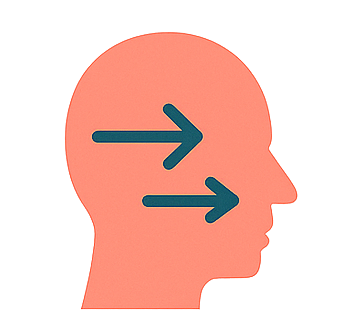
A tendency to interpret language and instructions literally, and to communicate in a very direct way. A high score might mean you find sarcasm, subtext, or unspoken rules confusing or frustrating, and may follow instructions exactly as given, even if the context suggests otherwise. People may also find you blunt or direct to the point of rudeness.

A strong need to understand the reason behind things. A high score means you often question rules, routines, or decisions that seem arbitrary or unclear. You might struggle with processes that don’t make logical sense and find yourself challenging rules and instructions.